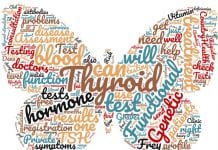Suffering from Crohn’s Disease gave me first-hand experience, regarding the effects of vitamin B12 deficiency.
As a doctor, I should have appreciated the importance of getting my vitamin B12 levels checked regularly, especially as I have Crohn’s disease, but I didn’t. Initially, on a day-to-day basis, I felt fine, and so the B12 deficiency went unnoticed. Eventually, however, the anemia and peripheral neuropathy set in. I found myself suffering from the effects of chronic B12 deficiency, which, for me, included fatigue, tiredness (relating to the anemia) and tingling in my hands (due to sub-acute degeneration of the spinal cord).
Luckily, the effects are reversible and simple blood tests to identify the deficiency, along with B12 supplementation, helped to get me to the correct levels. I hated taking the B12 shots and pills so, for these reasons, it was one of the first oral spray supplements I developed.
Could you be suffering from B12 deficiency?
Some studies have concluded that up to 12% of older adults In the USA could be suffering from vitamin B12 deficiency[1] but it is difficult to calculate the exact number or proportion at risk, as measurements of serum B12 levels, alone, can still miss low vitamin B12 levels[2].
Although the majority of healthy people have adequate B12 levels, there are individuals who are more prone to B12 deficiency, such as vegetarians (see below).
Why is B12 important to your health?
B12 is one of a group of 8 B-vitamins. It is a vital nutrient and plays a key role in neurological function, production of red blood cells and DNA synthesis.
Vitamin B12 cannot be made in humans and we rely on dietary sources. It is naturally found in animal proteins but can also be obtained from fortified cereals and dietary supplements.
How is B12 absorbed?
Once ingested in the body, it requires 3 steps to be absorbed into the bloodstream. Firstly, it needs to be ‘unbound’ from the animal proteins and this process occurs in the stomach, with the help of hydrochloric acid and certain enzymes (synthetic Vitamin B12 supplement is already in this form). Secondly, it needs to combine with something called ‘intrinsic factor:’ a substance excreted by the cells in your stomach, which enables it to be absorbed through the small intestine (step 3).
Are you at risk of Vitamin B12 deficiency?
You may be at an increased risk of Vitamin B12 deficiency for a number of reasons related to the processes we discussed, above.
If you’re vegan/vegetarian: Vitamin B12 is naturally found in animal products. If you do not eat animal products, you should consider additional supplementation of B12. It’s especially important that pregnant, vegan women, who are planning to exclusively breastfeed, talk to their medical team about getting adequate vitamin B12, for both themselves and their infants. Babies who don’t get any vitamin B12 can develop a deficiency and may sustain permanent neurological damage.
If you suffer from gastrointestinal disorders like Celiac disease or Crohn’s disease or have undergone weight-loss surgery: If you suffer from certain disorders, you may secrete too little hydrochloric acid or -intrinsic factor. People who suffer from Crohn’s disease may also have had part of their terminal ileum removed and, hence, be unable to absorb adequate B12 levels from their diet, alone.
If you’re age 50 or older: With age, your stomach cells become less efficient and secrete less hydrochloric acid, which means you absorb less B12.
If you take certain medications such as:
Medications for stomach ulcers and gastric reflux
Proton Pump Inhibitors such as omeprazole (Prilosec) and lansoprazole (Prevacid), and H2 blockers like cimetidine (Tagamet), famotidine (Pepcid), and ranitidine (Zantac). These types of medication are designed to reduce the amount of stomach acid. Stomach acid is necessary to free the dietary Vitamin B12 from the bound animal protein. Individuals who require medication to reduce the amount of gastric acid produced may also be at an increased risk of B1 deficiency.
Diabetes drug Metformin (Glucophage)
May reduce vitamin B12 absorption when used for several years
Alcohol abuse
Moderate to severe chronic alcohol consumption can have damaging effects on your stomach lining, causing a condition called atrophic gastritis, or inflammation of the stomach. When this occurs, the cells of the stomach cannot make and secrete intrinsic factor, which is necessary for the body to absorb B12.
Symptoms of B12 deficiency
A vitamin B12 deficiency may go undiagnosed because many of the symptoms — fatigue, weakness, constipation, loss of appetite, and weight loss — mirror those of minor illnesses or chronic conditions.
Other symptoms of B12 deficiency, such as numbness and tingling in the hands and feet, are also common in people with diabetes and spinal stenosis. If you have some of those symptoms — especially if you have a low red blood cell count — you should talk to your doctor about further blood tests for vitamin B12.
Preventing B12 deficiency
If you believe you are at risk for vitamin B12 deficiency speak to your physician and get tested. The cause of the deficiency can be identified and any subsequent treatment initiated.
Supplements: Supplements can come in a variety of forms. Choose a high quality supplement that delivers enough B12 to raise your levels back to normal. We suggest OneSecond Supplements Vitamin B12.
Fortified foods: Many breakfast cereals, soy products, and yeasts are fortified with B12 but, for most deficiencies, this may not be enough to raise B12 levels to normal, in an appropriate timescale.
Injections: If you have had weight-reduction surgery or have pernicious anemia, celiac disease, or Crohn’s disease, B12 injections may be recommended.















